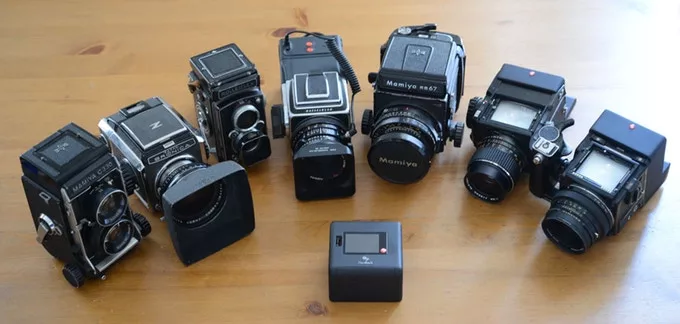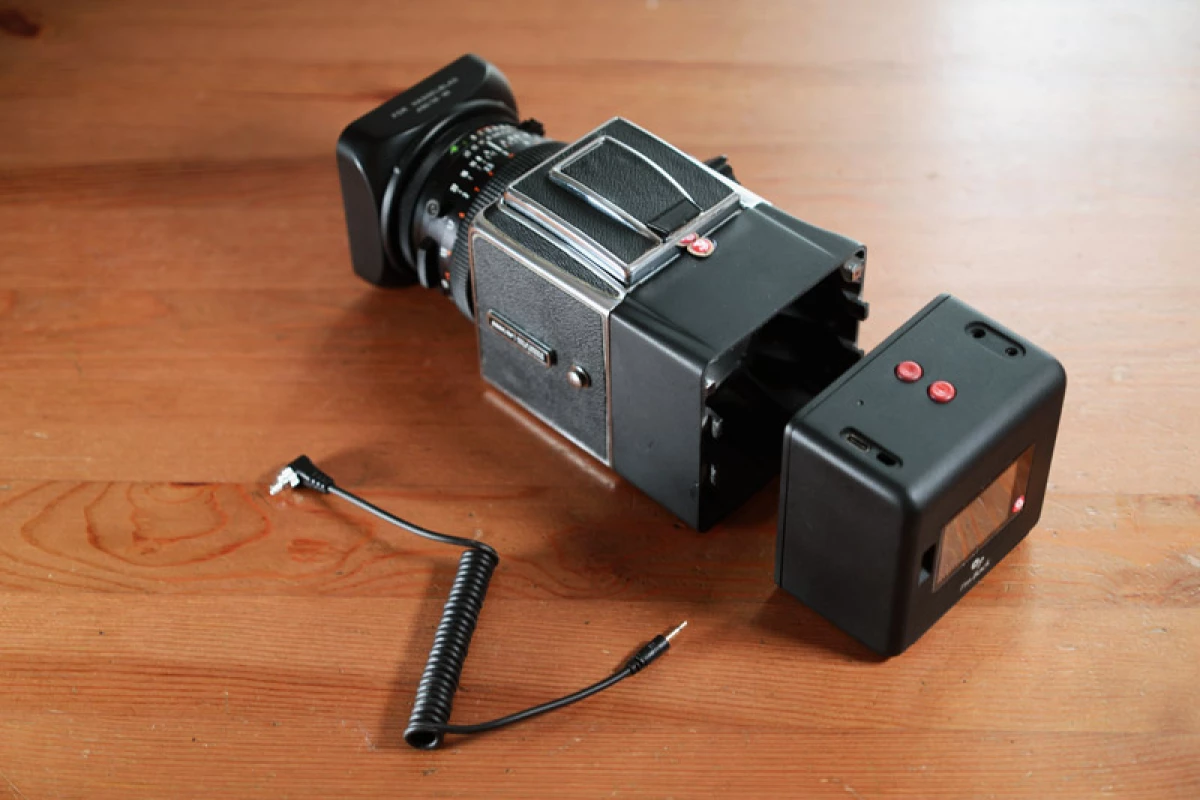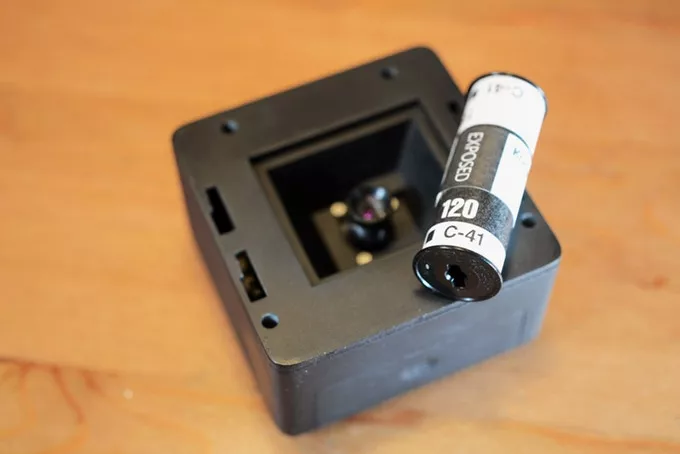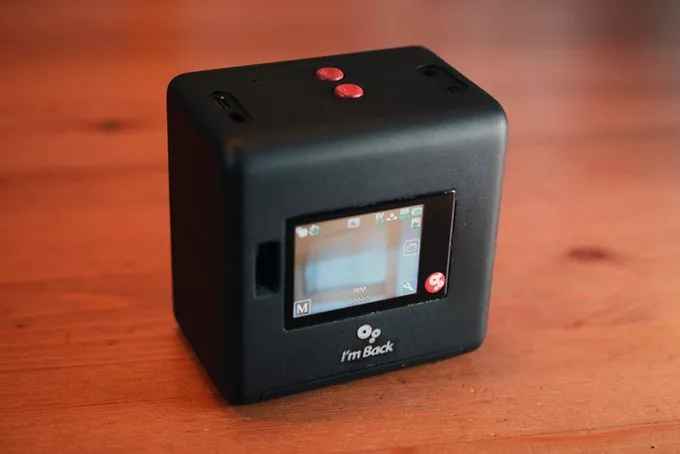Last year, Italy's Samuel Mello Medeiros hit Kickstarter with a chunky add-on that gave old 35 mm cameras a new lease of digital life. Now he's returned with a camera back that performs similar magic on classic medium format cameras like those from Hasselblad, Mamiya and Zenza Bronica.
The basic idea for the latest I'm Back family member is the same as the successfully-funded original, and the team has also taken to Kickstarter to fund this project too. The little black box features a 16 megapixel image sensor, Wi-Fi, a touchscreen display, and is designed to fit on the back of classic medium format analog cameras.

The back of the film camera is removed and replaced with an adapter, onto which the I'm Back MF digital back is mounted, which then gives the old Hasselblad or Bronica the ability to capture JPEG and RAW stills and record normal and slow motion video, which can be stored on a microSD card.
If the user wants to go back to film, the digital components are removed and the original back remounted.
Kickstarter pledges start at CHF 399 (about US$405), and backers will need to choose the appropriate adapter for their old medium format film cameras. If all goes to plan, shipping is estimated to start in April 2020. The video below has more.
Sources: I'm Back, Kickstarter







